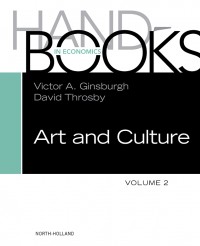Cultural Products in the International trading System

Debate about the linkages between globalization and cultural diversity is not limited to the well-known dispute about the effects of international economic integration in promoting or reducing the plurality of cultural expressions, but extends to the possible role of cultural diversity in explaining comparative advantage and trade or in generating market access barriers that can reduce the intensity of bilateral economic interactions. This chapter presents an overview of recent theoretical contributions, aimed at better understanding the linkages between trade and culture. The main common insight is that imperfect competition and network externalities in consumption define a framework in which international economic integration can lead to market concentration and cultural homogenization. In some cases, and under specific qualifications, some forms of ‘efficient protection’ of the cultural sector may increase economic welfare. In other cases, free trade remains the optimal policy, even if it entails some costs in terms of cultural diversity. Heterogeneous cultural preferences may be considered among the exogenously defined determinants of market equilibrium. Alternatively, their evolution may be modeled as the endogenous result of market adjustment to trade liberalization. The normative sections of this chapter discuss from different perspectives the options faced by the international community to improve the governance of cultural policies. Although bilateral and regional preferential trade agreements are becoming more relevant, a comprehensive and consistent solution of the trade-and-culture controversy is needed at the multilateral level. The 2005 UN Educational, Scientific and Cultural Organization (UNESCO) Convention on Cultural Diversity is an important achievement, but cannot solve this problem. A coherent and credible balance between the different positions can only be found by improving the World Trade Organization (WTO) regime. In the context of the digital revolution, the complementarity between the two global public goods of cultural plurality and international economic integration, and their role in sustaining the progress of societies, is hopefully becoming more evident.
